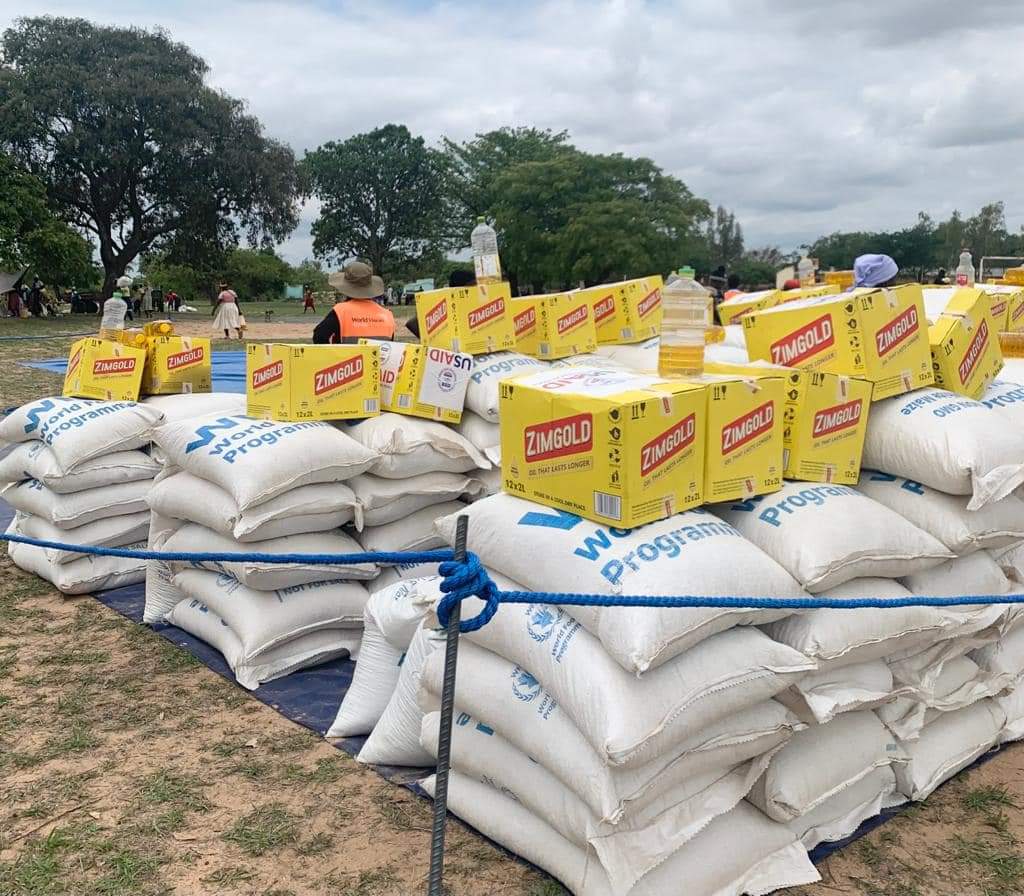
…..As Climate Change Effects Ravage Communities
By Tafadzwa Muranganwa
Silvia Chipenzi is a mental health patient and can’t fathom that the food aid she has been getting from the humanitarian agency, USAID is coming to end.
“I was now looking healthy because of this food relief and now that we are being told that this could be the last distribution we might be getting, I am in a dire strait.
“Unlike fellow villagers who are looking up to the good rains for a bumper harvest, I don’t have such a hope because of my ill health which restricts me to tend the fields,” Chipenzi from Ushe Village in Hwedza pours her heart out.
Burgeoning food insecure households
Chipenzi is among the 3, 8 million people in Zimbabwe who have been cited by the Zimbabwe Vulnerability Assessment Committee (ZimVAC) as being food insecure.
Out of this burgeoning hunger-stricken citizens, World Food Programme with assistance from USAID is supporting 700 000 with food hampers during the lean season which starts in October and ends in March.
At a food distribution held at St Barnabas Clinic in Hwedza, which was facilitated by Caritas Internationalis, Zimbabwe with the support from World Food Programme funded by USAID, scores of villagers who spoke to this publication admitting that the food hampers will come in handy to fight malnutrition which is becoming a major worry due to the incessant droughts.
In an interview on the sidelines of a government food relief distribution at Furamera in Chihota recently, WFP Representative and Country Director Ms Francesca Erdelmann said while Chipenzi and other citizens are clamouring for the extension of the assistance it will not be applicable this season but considerations will be made in the future.
“Unfortunately ,there won’t be extension of food relief assistance beyond this lean season but in future we are going to consider how we can help out since climate change is affecting seasons,” the WFP Zimbabwe boss said.
Looking Beyond Aid.
For the elderly Olivia Munodawafa, a beneficiary of the food relief programme, there has been rapid change in weather patterns that has worsened the hunger crisis in her village.
“While I can applaud the donor agencies for providing us with these food hampers, what I can attest is that the weather patterns are no longer favourable for us to have sufficient food,” narrates Munodawafa who stays with her two grandchildren.
According to Chief Ruzane, born Washington Mbavha, from Hwedza, there is the need for government to channel resources for de-siltation of a local dam to support small holder irrigation schemes which can help in addressing the acute food shortages affecting his area.
“We have a dam that has been affected by siltation which if the government and donor agencies provide us with funds. This will go a long way in solving the food crisis which we currently facing because it will enable irrigation schemes to operate,” he said.
Speaking at the same occasion, the deputy minister of public service, labour and social welfare, Lovemore Matuke said government is planning to drill a borehole for every village in the country to beat the adverse changing weather patterns.
“As government we have already embarked on a project that will see every village having a borehole to promote irrigation such that our citizens don’t rely on rain-fed agriculture only,” he said.
He also rallied humanitarian agencies for complementing government’s efforts to ensure food secure households.
“I am pleased that you are coming here our friends (humanitarian agencies) and supporting government’s mandate to feed its citizens,”Matuke said.
‘Overcome’ through Resilience Building
Determined to see that Zimbabwe becomes food secure, USAID is embarking on a US$55M project (October 2020-September 2025) dubbed ‘Takunda’ meaning ‘we have overcome’ that is meant for resilience building.
Led by Care International, the project aims to achieve ‘Sustainable, Equitable, and Resilient Food, Nutrition and income security in Manicaland (Buhera and Mutare) and Masvingo (Chivi and Saka).
The purpose of the project is to ‘increase gender equitable income among extremely poor and chronically vulnerable households, women , and youth, improve nutritional status among children under 5 years ,adolescent girls ,and women of reproductive age and reduced impact of shocks and stresses for extremely poor and chronically vulnerable households ,women ,and youth’.
The guiding principles for Takunda include local systems strengthening and sustainability, adaptive management and engaging communities through the community visioning process to influence activity selection.


